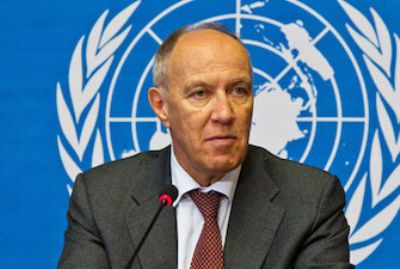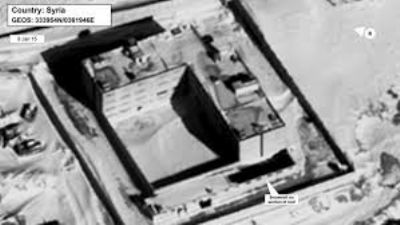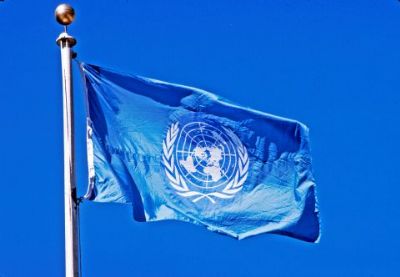Share
What's New
Resources updated Monday, May 15, 2017
May 15, 2017

"For more than a year, a United Nations agency in Geneva has been helping North Korea prepare an international patent application for production of sodium cyanide -- a chemical used to make the nerve gas Tabun -- which has been on a list of materials banned from shipment to that country by the U.N. Security Council since 2006.
The World Intellectual Property Organization, or WIPO, has made no mention of the application to the Security Council committee monitoring North Korea sanctions, nor to the U.N. Panel of Experts that reports sanctions violations to the committee, even while concerns about North Korean weapons of mass destruction, and the willingness to use them, have been on a steep upward spiral...
[T]he U.N.'s Panel of Experts on North Korea "has no record of any communication from WIPO to the Committee or the Panel regarding such a serious patent application," said Hugh Griffiths, coordinator of the international U.N. expert team, in response to a Fox News question...
This is by no means the first time that WIPO, led by its controversial director general, Francis Gurry, has flabbergasted other parts of the U.N. and most Western nations with its casual and undeclared assistance, with potential WMD implications, to the bellicose and unstable North Korean regime...
In 2012, Fox News reported that WIPO had shipped U.S.-made computers and sophisticated computer servers to North Korea, and also to Iran, without informing sanctions committee officials..."
UN agency helps North Korea with patent application for banned nerve gas chemical Article

The Syrian government has constructed and is using a crematorium inside its notorious Sednaya military prison outside Damascus to clandestinely dispose of thousands of prisoners it continues to execute inside the facility, according to the State Department.
At least 50 prisoners a day are executed in the prison, some in mass hangings, said Stuart Jones, the acting assistant secretary of state for the Middle East. A recent Amnesty International report called Sednaya a "human slaughterhouse" and said that thousands of Syrians have been abducted, detained and "exterminated" there.
The government of President Bashar al-Assad, Jones said, has carried out these atrocities and others "seemingly with the unconditional support from Russia and Iran," his main backers.
The information, he said, came from human rights and nonovernmental sources, as well as "intelligence assessments." He released overhead photographs of the facility.
Russia, Jones said, "has either aided in or passively looked away as the regime has" engaged in years of "mass murders" and other atrocities, including extensive bombing of hospitals and other health-care sites and the use of chemical weapons on both civilians and rebel forces.
During last week's meeting in Washington with Russian Foreign Minister Sergei Lavrov, Jones said Secretary of State Rex Tillerson said that "Russia must now, with great urgency, exercise its great influence over the Syrian regime."
Jones's remarks, made in a special State Department briefing, were notable not only for their substance but for the harsh language used to call on Russia to take action.
Report: Syrian regime has built cremation facility to erase evidence of atrocities Document


